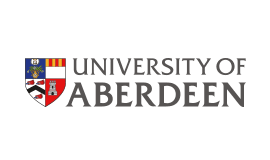PhD Opportunity with PROTECTED Partner at University of Aberdeen

EASTBIO How are sex differences controlled? The case of the human fetal clitoris and penis.
Aberdeen University School of Medicine, Medical Sciences & Nutrition
Prof P A Fowler , Dr R Mitchell Wednesday, January 06, 2021 Competition Funded PhD Project (Students Worldwide)
Aberdeen United Kingdom Bioinformatics Cell Biology / Development Endocrinology Molecular Biology Obstetrics, Gynaecology & Reproduction Public Health & Epidemiology
About the Project
Supervisors:
Professor Paul Fowler (University of Aberdeen)
https://www.abdn.ac.uk/ims/people/profiles/p.a.fowler
Dr Rod T Mitchell (University of Edinburgh)
https://www.ed.ac.uk/centre-reproductive-health/dr-rod-mitchell
Over recent decades understanding about sex differences in all aspects of body function has strengthened. Indeed, the COVID-19 pandemic illustrates this with a 2:1 mortality ratio between men and women. The main sex differences are: (1) sexual dimorphism, differences in size and form, excluding genitalia, between sexes; (2) organs that are fundamentally different between the sexes, such as gonads; (3) developmental and functional differences, such as sex differences in metabolism and efficacy of medicinal drugs. Understanding fundamental sex differences in organs of the same developmental origin between the sexes, such as the liver, is key to understand biological mechanisms behind normal physiology and lifelong health. One organ that shows strong divergence between the sexes early in development is the genital tubercle, which in males gives rise to the penis and in females to the clitoris. In humans, canonical and back-door androgens (DOI: 10.1371/journal.pbio.3000002) are important in driving penis development but non-androgen pathways are important in development of both sexes (DOI: 10.1016/j.diff.2019.07.005 ). Furthermore, genital tubercles of both sexes express androgen and estrogen receptors while estrogen levels are high in male and female human fetuses.
The aim of this PhD is to understand the mechanisms behind sex-specific development of the human genital tubercle and use that information to identify mechanisms behind sex differences in the liver and other critical organs.
In order to achieve this aim, the student will be part of the SAFeR study (Scottish Advanced Fetal Research study) coordinated by Fowler. This study collects electively terminated normal human fetuses (between 7 and 20 weeks of gestation) at the University of Aberdeen (ethical approval: REC:15/NS/0123). Collaboration with Mitchell brings extensive experience researching the effects of endogenous and exogenous factors (e.g. sex hormones, pharmaceuticals and chemical exposures) on human fetal reproductive development in addition to clinical experience of patients with Disorders of Sex Development (DSD), in which genital development is frequently atypical.
OBJECTIVE 1: The student will perform data-mining of our human fetal genital tubercle RNA-seq data to identify dynamic sex differences and how they alter with fetal age. Together with cell-specific expression analysis (e.g. RNAscope), these data will be used to identify androgen dependent and independent pathways underpinning genital tubercle sex specific differentiation.
OBJECTIVE 2: Using RNA-seq and/or proteomic data we and others have generated (liver, adrenal, thyroid, placenta), these pathways will be investigated to identify potential novel regulators of sex specific differences.
OBJECTIVE 3: Maternal obesity is a major contributor to developmental abnormalities, including mal-development of the penis (hypospadias, DOI: 10.1111/ppe.12373 ). The student will compare development of the genital tubercle between normal and overweight pregnancies to identify sex-specific pathways affected by maternal obesity, combined with epidemiological approaches to understand long term risks of maternal obesity to sex differentiation.
The intended impact of this PhD is to provide the basic mechanistic principles of the differentiation of the human fetal genital tubercle into penis and clitoris and use those principles to understand important sex differences established in key organs during fetal development and how they affect normal function and health.
Application Procedure:
http://www.eastscotbiodtp.ac.uk/how-apply-0
Please send your completed EASTBIO application form, along with academic transcripts to Alison McLeod at pgr-mmsn@abdn.ac.uk. Two references should be provided by the deadline using the EASTBIO reference form. Please advise your referees to return the reference form to pgr-mmsn@abdn.ac.uk.
Funding Notes
This 4 year PhD project is part of a competition funded by EASTBIO BBSRC Doctoral Training Partnership View Website. This opportunity is open to UK and International students and provides funding to cover stipend and UK level tuition (limited funding is available to provide international tuition fees). Please refer to UKRI website and Annex B of the UKRI Training Grant Terms and Conditions for full eligibility criteria.
Candidates should have (or expect to achieve) a minimum of a 2:1 UK Honours degree, or the equivalent qualifications gained outside the UK, in a relevant subject.
